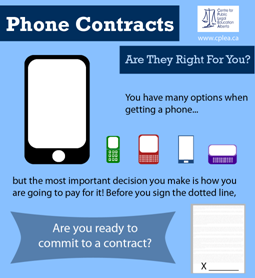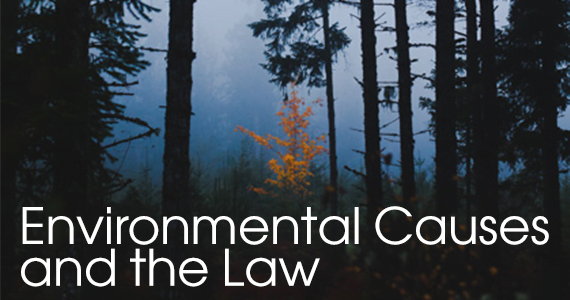This series, “A Day in the Life of our ED”, looks at the important role of the Executive Director in the CPLEA team.
If you’ve read the other posts in this series, you may think being the Executive Director is all fun and games. But the Executive Director also spends a large portion of their time managing day-to-day operations. This includes raising money, reporting to funders, going through audits, human resources, policy development, risk assessment, and project and program design, delivery and evaluation.
The Executive Director works to ensure the excellence of CPLEA’s services. And while that may not be the definition of “fun” it certainly is rewarding.
If you have the skills and desire to “steer the ship”, you’re in luck! Our Executive Director, Diane Rhyason is retiring, so we’re hiring!
A Day in the Life of our ED: Make New Things
This series, “A Day in the Life of our ED”, looks at the important role of the Executive Director in the CPLEA team.
CPLEA is in the business of creating new programs, resources, and services to educate the public about the law, and the Executive Director is at the centre of this. Staff dream up new ideas on a daily basis, like – let’s film a puppet mock trial for YouTube – or – let’s design an infographic about dying in the digital age.
Being the Executive Director means supporting an innovative team that is busy creating new things. Our ED has a strong interest in using new technologies for building community capacity and for reaching people with information.
If you’d like to be a part of a team creating new things, you’re in luck! Our Executive Director, Diane Rhyason is retiring, so we’re hiring!
New CRTC Code for Cell Phone Contracts

The CRTC has issued a new code for cell phone contracts. This code, which will apply to new contracts starting December 2, 2013, allows consumers to:
- terminate their wireless contracts after two years without cancellation fees, even if they have signed on for a longer term;
- cap extra data charges at $50/month and international data roaming charges at $100/month to prevent bill shock;
- have their cellphones unlocked after 90 days, or immediately if they paid for the device in full;
- return their cellphones, within 15 days and specific usage limits, if they are unhappy with their service;
- accept or decline changes to the key terms of a fixed-term contract (i.e., 2-year); and,
- receive a contract that is easy to read and understand.
In the meantime, if you have questions about your wireless contract, you can check out our infographic, “Phone Contracts: Are they right for you?”
May/June 2013 Issue of LawNow: Families in Flux

Featured Articles: Families in Flux
Change is life and life is change! Families change and sometimes, the law will be a part of this process.
Common Immigration Mistakes That Canadian Citizens Make When Marrying U.S. Citizens
Marrying an American? Don’t book your wedding reception until you read what these lawyers have to tell you.
The Tax Implications of Marital Breakdown
The breakdown of a marriage can be made even more stressful if tax issues are not addressed.
What’s in a Name?
Think carefully before deciding to legally change a child’s name; there are lots of issues.
Juvenile Justice in Namibia
Namibia has lofty intentions in its work towards a comprehensive program for its young offenders, but progress is slow.
Special Report: Resource Development Issues

Griffiths Energy Violates the Canadian Corruption of Foreign Public Officials Act
This Canadian mining company blew the whistle on itself when it discovered irregularities in some of its consulting agreements.
The Yukon’s Open Entry Mining System Declared a Breach of the Duty to Consult
Mining is big business in the Yukon and, as it increases, the risk of conflict between First Nations and exploration companies increases.
Departments
Viewpoint
Building a Child-Sensitive Canada
Bench Press
Texting with Telus
Red Horse/Black Horse
Conspiracy Theory?
Judicial Discretion Defended
Give It Up!
Columns
Human Rights Law
Equality Case Seems to Have Fractured the Supreme Court of Canada
Law and Literature
Cronaca Nera: Two True Crime Books from Italy
Online Law
Helping Children and Teens Deal with Separation and Divorce
Not-for-Profit Law
Overhead Overdone?
Famous Cases Revisited
Whatever Happened to … Moore and Bertuzzi?
Landlord and Tenant Law
Co-Tenants and Co-Responsibility
Employment Law
Post-Employment Legal Obligations
Want to write for LawNow Magazine?

LawNow Magazine is looking for volunteer contributors.
If you share our enthusiasm and commitment to public legal education, consider writing on one of the topics in our Call for Contributors, or contact us with your own suggestions for themes, special reports, and columns. We would also welcome your blog posts, either about your article or another article that you see in LawNow.
Some of the topics outlined in the Call for Contributors include:
- Family law, domestic violence;
- Vulnerable youth;
- The law and birth;
- Legal issues and language;
- Law for immigrants;
- The law and people with disabilities;
- Lost and found, lost property;
- The law and luck, gambling;
- The Judiciary;
- New issues in criminal law;
- Copyright law;
- Five famous cases;
- Canadian legal history;
- Aboriginal law;
- The law and Christmas;
- Senate reform;
- Insurance law;
- Neighbours and the law, municipal law.
If you know someone who would be a great contributor to LawNow, please circulate the Call for Contributors to them. First-time contributors are most welcome and help us to keep the magazine fresh and relevant.
Please contact us to let us know how we can best work together on the next volume of LawNow. We hope to gather responses by April 19, 2013 but we are always open to your ideas, suggestions and offers to contribute.
LawNow 37-4: Environmental Causes and the Law
Featured Articles: Environmental Causes
The Constitutional Right to a Healthy Environment
Environmental rights enjoy constitutional protection in over 100 countries. Canada is not one of them, but it should be.
The Oil Sands: Westward – How?
There are many obstacles: technical; legal; constitutional; and political that stand in the way of transporting Alberta’s bitumen out of the province.
Civil Disobedience, Environmental Protest and the Rule of Law
Civil disobedience can strengthen the Rule of Law by leading to the correction of unjust or seriously wrong laws before disrespect for the system has a chance to take hold.
The Difference a Year Makes: Changes to Canadian Federal Environmental Assessment Law in 2012
The omnibus budget bill of 2012 contained many measures that profoundly changed Canada’s environmental protection laws, and not for the better.
Nickel Shower: An Environmental Class Action
The case of Smith v. Inco Ltd. is the first Canadian environmental class action lawsuit to proceed through a trial and appeal.
Special Report: Helping Yourself
How To Avoid Your Day in Court
Think of the law as a spectrum with the courthouse at the very end. There are lots of ways that you can avoid going there!
Helping Yourself: Where Do You Start?
There are many of sources for legal information, ranging from walk-in offices to websites to help you access the law.
Doin’ It Your Own Way… Unsuccessful Succession
Yes, of course you can make your own Will. But, should you?
Departments
Letter to the Editor
Viewpoint
The Economy and The Environment
Bench Press
Interest in Access to Justice
Denunciation, Deterrence, and Death
No Jury-vetting, We’re Canadian
The Defence of Duress
A Dog Divided?
Columns
Human Rights Law
Standing Up for Your Rights
Family Law
Words Without Weight – Enforcing Parenting Orders
Online Law
Online Resources for Dispute Resolution
Not-for-Profit Law
Anti-Spam Law May Snare Charities
What Ever Happened to … A Follow-up to Famous Cases
Casey Hill and the Church of Scientology
Landlord and Tenant Law
Getting Your Security Deposit Back
Employment Law
Protection and Prosecution: Falling at Work
What topics would you like to see covered in LawNow Magazine?
 It’s that time of year again! All of the staff at the CPLEA will gather around a feast of lemon squares and kale chips to brainstorm ideas for the next volume of LawNow Magazine.
It’s that time of year again! All of the staff at the CPLEA will gather around a feast of lemon squares and kale chips to brainstorm ideas for the next volume of LawNow Magazine.
While we like to think that we’re quite brilliant when it comes to thinking up important and emerging topics, we’d also like to hear from you.
What topics would you like to see covered in LawNow Magazine?
What areas of the law do you have questions about?
Where do you need more information on how the law relates to your life?
You can let us know your thoughts in a couple of ways:
- Leave us some feedback on our website. Visit www.lawnow.org and you will find a red feedback button at the very top of the site.
- Tweet us @LawNowMag.
- Email us at info@lawnow.org.
- Or leave a comment on this blog post.
And while we work on narrowing down topics for the next volume of LawNow, stay tuned for the March/April 2013 issue where we look at Environmental Causes and Helping Yourself to Solve Legal Problems.
LawNow Magazine's Latest Issue: Constitutions and Developments in Internet Law
The latest issue of LawNow is available
Full PDF of the issue
The Feature Articles in this issue is on Constitutions.
Do Constitutions matter? Indeed they do. Just ask the Egyptian people protesting, confronting, and even dying over the drafting of their new constitution..
The Special Report looks at developments in internet law.
Table of Contents
Featured Articles: Constitutions
Evolution, Not Revolution: Canada’s Constitutional History and the Constitution Act, 1867
Some constitutions are born of revolution, some of evolution. Canada is a fortunate nation: our Constitution has evolved.
O Patria: The Patriation Struggles
Bringing home our Constitution has forever shaped our national political and legal landscape.
The Canadian Charter of Rights and Freedoms: An Integral Part of our Constitution
Canada’s Constitution and our Charter of Rights work together to create our laws and protect our rights.
The Constitutions of the Maritime Provinces
Constitutions are essential documents in Canada’s Maritime provinces, reflecting history and defining the present.
Bills of Rights in Canada
The federal government and the provinces have bills of rights, human rights codes, the Charter and the Canadian Bill of Rights 1960. It gets a bit confusing!
Special Report: Developments in Internet Law
Privacy and Cloud Computing
When do clouds not refer to the weather? When they are a term for Internet storage!
Canada’s New Anti-Spam Legislation: What to Expect
What do you or your business need to know about this new law?
Defamation by Hyperlink
The Supreme Court of Canada described some of the interactions of the law and the Internet as “trying to fit a square archaic peg into the hexagonal hole of modernity”.
Departments
Viewpoint
Let’s hear more indigenous success stories
Bench Press
Special Needs; Special Education
Two Spouses; One Deceased
Trial Judge Plagiarism
Sperm Donor Dads Remain Anonymous
Columns
Human Rights Law
The Supreme Court of Canada Changes Direction
Family Law
Relocation Advisory Guidelines – an idea whose time has come?
Employment Law
The Confidentiality of Commercially Valuable Information
Online Law
Who Cares about Internet Law and Policy?
Not-for-Profit Law
Proposed Bill, Though Well-intentioned, Raises Questions
What Ever Happened to … A Follow-up to Famous Cases
R. v. Sault Ste. Marie: The Due Diligence Defence
Landlord and Tenant Law
Renting with a Pet
Latest Issue of LawNow Magazine: Elections and the Law & Privacy Law
Free and fair elections are the cornerstones of democracies. This issue of LawNow examines elections law in Canada and around the world.
American and Canadian Election Laws
There are many differences between the U.S. and Canadian election laws. Here are our top 10!
Democracy After Post-Conflict Elections – Are we there yet?
Perhaps our hopes are too high. The reality is that post-conflict elections are often far from satisfactory.
Running for Office: A Candidate’s Journey
From theory to reality: a candidate’s journey through an election is both bruising and rewarding.
Riding the Election Cycle
Elections in Alberta follow a four-year cycle, and there is lots of work to do in between elections.
Electoral Finance Rules at Home and Around the World
There is consensus in Canada and around the world that strict electoral financing rules are necessary for democracy and transparency.
 Special Report: Privacy Law
Special Report: Privacy Law
Privacy Law in Canada
There are many challenges to the right to privacy for Canadians: fortunately, we have committed and engaged privacy commissioners to help.
Intrusion on Seclusion: The Tort of Invasion of Privacy
The new tort of Invasion of Privacy has been created in Canadian law, aptly summarized as Intrusion on Seclusion.
Privacy Issues in Criminal Law
Nowhere is protection of personal privacy more important than in the realm of criminal law. The Canadian Charter of Rights contains important safeguards for Canadians facing criminal charges.
The Complexities of Privacy and Social Networking Sites
Facebook users need to know about the privacy challenges that can arise from the use of this popular social media site.
Departments
Viewpoint
Freedom from bias always your right
First Nations people can now seek equality other Canadians enjoy
Bench Press
Children and Cyber-bullying
What do We Mean by Public Standing?
A Task for Solomon?
Reid This: Police Tactic Oppressive
Columns
Human Rights Law
Sexual Harassment is a Continuing Issue in Canada
Family Law
Considering Custody
Law and Literature
Miss Julie’s Revenge, or Men Who Hate Women, Please Meet Lisbeth Salander
Employment Law
The Law of Embellished Credentials
Landlord and Tenant Law
Protecting Your Personal Information When You Rent
Not-for-Profit Law
Questioning Jurisdiction
What Ever Happened to … A Follow-up to Famous Cases
Roncarelli v. Duplessis
Subscribe to receive email updates once a month when new content is published on LawNow.org.
LawNow Magazine Officially Launches as a Free Digital Magazine
Today is a day to celebrate for LawNow staff, the Legal Resource Centre and the Centre for Public Legal Education Alberta. Today we launch the new, totally re-designed LawNow website. It is a day to share with you how very far we have come. In 1975, LawNow began as a short, small, black and white newsletter called Resource News with content entirely generated by Legal Resource Centre staff. It was targeted for law librarians and lawyers and it featured news of interest to the legal and library communities. By 1980 Resource News had evolved into a 24-page magazine and it began to feature articles about the law from contributors from outside the Centre, a major development. In 1989 a complete revamp of the magazine saw it re-christened LawNow. This new magazine featured lots of material from volunteer contributors, the use of photos and illustrations on the cover and inside, and even the use of colour. Only one colour, but still, colour!
Now, in 2012, LawNow is once again undergoing a transformation. We made the move to a digital-only format in 2010. At the time, it was due to budget constraints, but more and more we are feeling that digital publishing will be the way of the future and we are capturing that evolution at just the right time. And, just this year, we were able to offer LawNow free of charge. We are so excited about the possibilities that this opens up: the tremendous potential to raise our profile across the country, the schools, law firms, not-for-profit organizations and libraries we will be able to reach, and the thousands of new readers we can attract.
To help us celebrate, check out our latest issue; it’s all about sex and taxes! Our Feature examines the Canadian tax system and where to turn when you have a tax issue. Our Special Report looks at where sex and the law meet: prostitution, sex tourism, gender identity. Our regular columns provide practical information on a variety of topics, including human rights law, not-for-profit law, employment law, family law, and more!
If you’d like to receive notice when new content is published, sign up for LawNow email updates.
Visit www.lawnow.org to see what all the excitement is about!
Thanks for your support,
Teresa Mitchell and Kristy Rhyason




 Special Report: Privacy Law
Special Report: Privacy Law